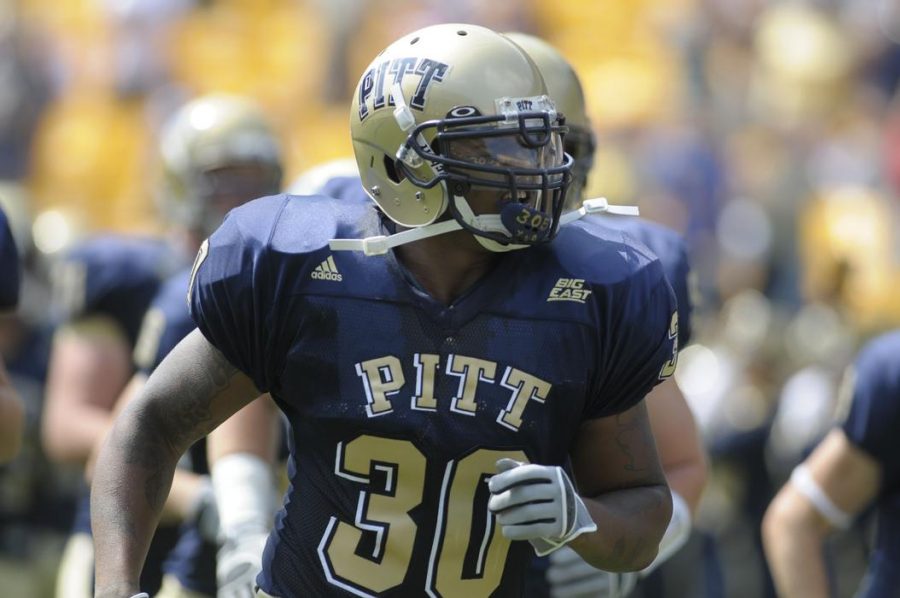Former Pitt fullback Conredge Collins joined athletes from 42 other universities in a class action complaint on Tuesday against two national athletic entities regarding the lasting effects of concussions.
The complaint — filed against the NCAA and the American Athletic Conference, formerly called the Big East Conference — is part of a round of 18 federal lawsuits filed by national plaintiffs’ law firm Edelson PC. The complaint was filed on behalf of former football players suffering from lasting effects of concussions sustained during their college careers.
This is the fifth and largest wave of suits filed by the firm, which has now filed 43 such suits since May.
Collins played fullback at Pitt from 2005 to 2009, where he contributed in his first year and spent his last three seasons as the team’s starting fullback. He racked up 331 yards and a pair of touchdowns over his four-year collegiate career, but said he has sustained long-term damage in the process.
According to the complaint, Collins now suffers from issues such as depression, light sensitivity and memory loss.
The suit claims that, for decades, the NCAA and AAC knew about the risks associated with concussions and other traumatic brain injuries resulting from playing football, but actively concealed them from student-athletes and failed to implement procedures to protect football players from the long-term dangers associated with them.
Under its new Concussion Management Plan, implemented in 2010, student-athletes who exhibit signs, symptoms or behaviors consistent with a concussion are to be removed from practice or competition and evaluated by a health care provider with experience in the evaluation and management of concussions.
Additionally, student-athletes diagnosed with a concussion cannot return to activity for the remainder of the day and until the team physician clears them to return.
Attorneys from Edelson PC, representing Collins, could not be reached for comment at the time of publication.
Pitt Athletics spokesperson E.J. Borghetti declined comment and attempts to contact another University spokesperson were unsuccessful.
The AAC declined comment, while NCAA Chief Legal Officer Donald Remy responded to the complaint in a statement.
In a similar suit, filed in 2011 by former Eastern Illinois safety Adrian Arrington, a federal judge granted initial approval earlier this year for a $75 million settlement that would cover research and brain damage screenings and examinations for former athletes.
Arrington opposed the settlement, arguing that individual athletes should receive compensation, according to a January New York Times article. Remy said in an emailed statement that this round of lawsuits was a reaction to that earlier case.
“These lawsuits are mere copycats –– using the exact same language –– of the more than 40 cases this lawyer has filed in a matter of months,” the statement read. “The NCAA does not believe that these complaints present legitimate legal arguments and expects that they can be disposed of early by the court.”



